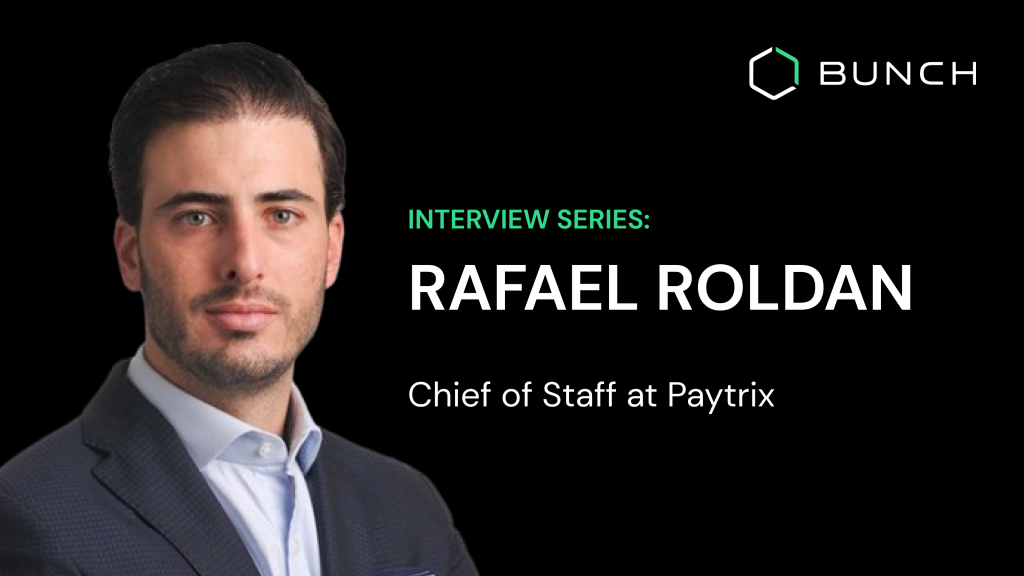
Peer coaching has been very effective. It involves coaching without being prescriptive, helping people see their blind spots.
Rafael Roldan
In this edition of our new Leadership Development Interview Series, we sat down with Rafael Roldan Uribe, Chief of Staff of Paytrix, who was one of the few leaders we spoke that that doesn’t sit within the “People & Culture” team. He was able to provide a big picture perspective from the C-Suite of a growing scale-up in Fintech, and it was extremely fascinating to hear his take on what’s working for his company!
Rafael, can you tell us a bit about yourself and your current role?
I’m currently the chief of staff at our company, which is in the fintech industry, specifically focusing on cross-border payments. We’re a relatively new company, founded about 18 months ago, with 110 people. We’ve raised two rounds of venture funding. My role is quite fluid; I started when we were just six people, and I’ve been with the company since then.
What are currently challenges with leadership development overall in your company?
The current challenges are primarily within scaling, specifically maintaining the pace of work and ensuring everyone is aligned and moving in the same direction. Although I’m not directly involved in hiring and recruiting, I can speak to the challenges in terms of product deployment and keeping pace with client demands and our roadmap.
How do you currently select new leadership talent to develop?
In my previous career, before joining my current company, the challenge was in supporting people to bring out their best. It’s about balancing their interests with the company’s roadmap, giving them space to pursue their passions while aligning with the company’s goals. This involves coaching and revisiting their ideas when appropriate.
Which tools and programs do you have in place for that?
Peer coaching has been very effective. It involves coaching without being prescriptive, helping people see their blind spots. It was more of an informal setup, where we provided some training material on how to coach effectively.
Have you considered using AI tools in development the future generation of leaders? Why not?
I think AI tools in learning and development are great, as long as the information provided is accurate. AI can deliver personalized learning experiences, which is valuable. However, AI in coaching can be tricky due to the personal and human element involved in coaching.
Which skills do people need to succeed as a leader at your company?
The top skills needed are being good listeners, communicating a clear strategy, and giving prompt and consistent feedback. These skills help in understanding and addressing issues more effectively and keeping everyone focused and aware of their performance.
If you were able to support everyone that wanted it in developing their leadership skills, instead of a few selected people what would be different?
If everyone who wanted support had access to training and coaching, it would likely lead to increased self-awareness and emotional intelligence in the workplace. This could reduce emotional stress and improve communication and understanding among team members.
Why does leadership development even matter?
Leadership development is fundamental, especially as a company scales. The quality of leadership at different levels of the organization directly impacts its success. Without competent leaders throughout, the organization can face significant challenges, despite having strong leadership at the top.
To learn from more experts on how to grow leaders at your company, check out our full list of interviews here.
If you’re looking to grow future leaders at your own company, get in touch to see how Bunch can enable you to give every person in your company a personalized, continuous development program in just 2 minutes a day.





